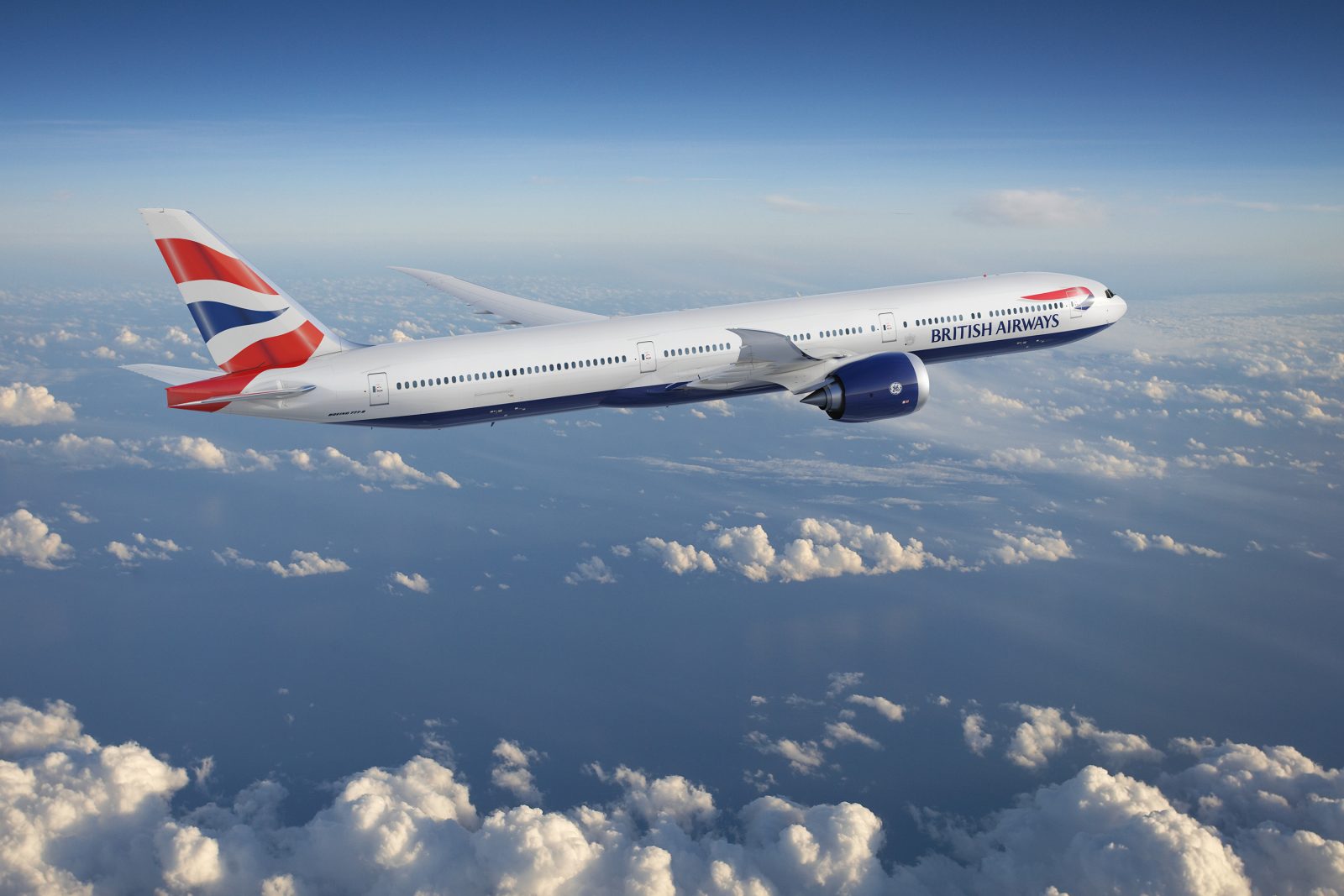
British Airways today published its financial results for 2018, revealing it made £1.95 billion last year and pushing its operating margin over 15% higher compared to 2017. The news of the Heathrow-based airline’s strong performance coincided with an announcement that the airline plans to order up to 42 of Boeing’s next generation 777-9 aircraft which would be worth nearly $19 billion at list value.
As it stands, British Airways has committed to buying 18 brand new 777X aircraft which will be delivered to the airline between 2022 and 2025. The aircraft, which will each seat 325 passengers across four cabins, will be used to replace BA’s ageing fleet of 747’s that are set to be retired around the same time. British Airways, which is already one of the largest 777 operators in the world, has also taken options for a further 24 777X’s.
What’s particularly interesting about this order is the revelation that the new aircraft will continue to feature four cabin classes – First Class, Business Class, Premium Economy and Economy. While many of BA’s competitors have ridden themselves of First Class, it looks like British Airways will continue to offer this cabin on its new fleet of long-haul aircraft for some time yet to come.
Over the last decade, we’ve seen such a massive step change in the quality and privacy offered by newer Business Class products that a separate First Class cabin has become pretty much redundant. BA’s so-called FIRST product hasn’t been able to compete with rival products for years – it was once dubbed the ‘World’s Best Business Class’ but even that crown was snatched by Qatar Airways and it’s actual Biz Class QSuite.
British Airways previously announced that it wouldn’t offer FIRST on its medium-haul A350’s – the first of which, featuring the airline’s brand new Club World seat, will be delivered this summer. Unlike its rivals, British Airways clearly sees a need to continue offering First Class so it will be interesting to watch how the airline tries to keep this product offering competitive with the likes of European greats like Lufthansa and Air France, as well as the Middle Eastern excesses offered by Emirates and Etihad.
“The 777-9, in particular, simply has no competitor in its class when it comes to efficiency and performance. It is the right-sized airplane for British Airways to efficiently serve long-range routes with heavy passenger demand,” explained Boeing’s Kevin McAllister.
Meanwhile, Willie Walsh the chief executive of IAG which is the parent company of British Airways said the 777-9 was the “ideal replacement for the Boeing 747”, explaining that “its size and range will be an excellent fit for the airline’s existing network.”
The Madrid-based airline group which also owns Iberia, Vueling, Aer Lingus and low-cost long-haul carrier LEVEL announced a 44% increase in annual post-tax profits despite facing a number of challenges including rising fuel costs that have hit many airlines around the world hard.
All of the group’s brands performed well throughout 2018 with passenger demand rising in most markets. Walsh, however, notes that he expects profits to be pretty much flat for 2019 with improvements in passenger revenue set to be offset by fluctuations in fuel costs.
IAG recently announced it would was no longer interested in acquiring long-haul competitor Norwegian after making two bids for the low-cost airline last year.
Mateusz Maszczynski honed his skills as an international flight attendant at the most prominent airline in the Middle East and has been flying ever since... most recently for a well known European airline. Matt is passionate about the aviation industry and has become an expert in passenger experience and human-centric stories. Always keeping an ear close to the ground, Matt's industry insights, analysis and news coverage is frequently relied upon by some of the biggest names in journalism.







